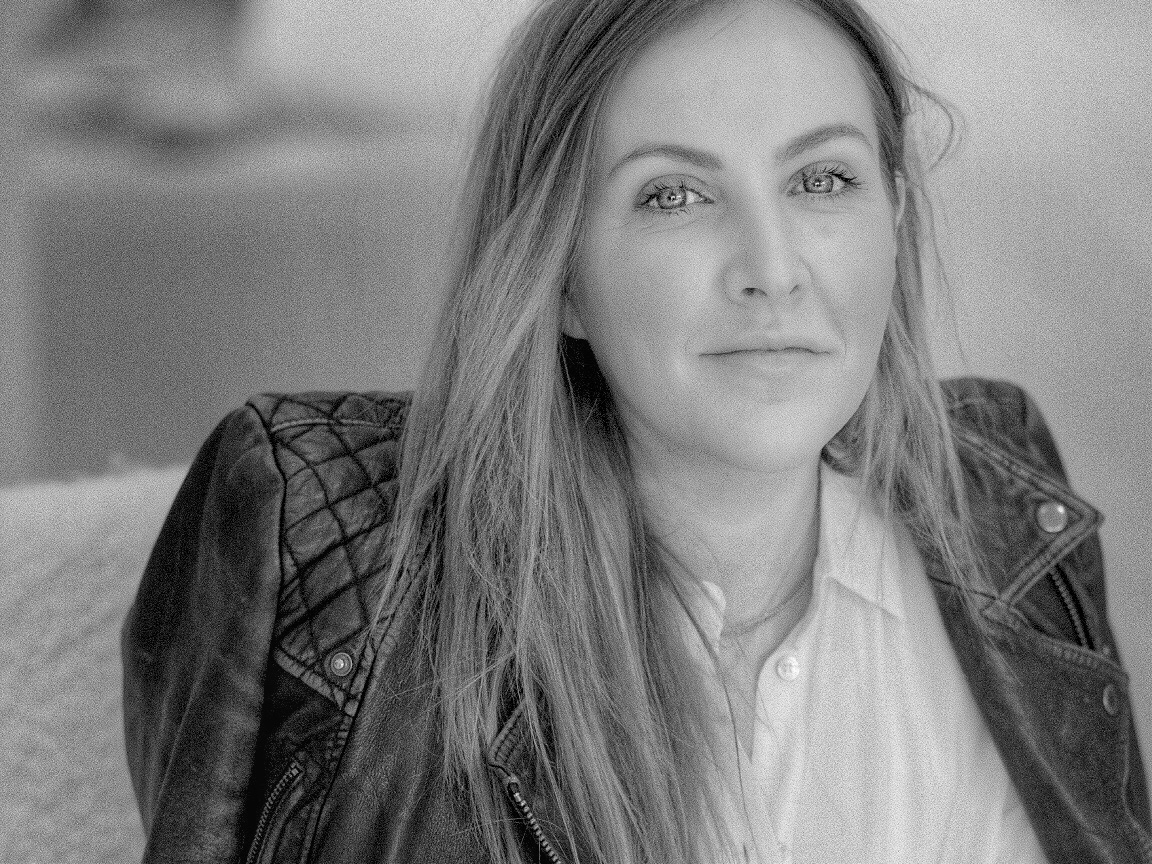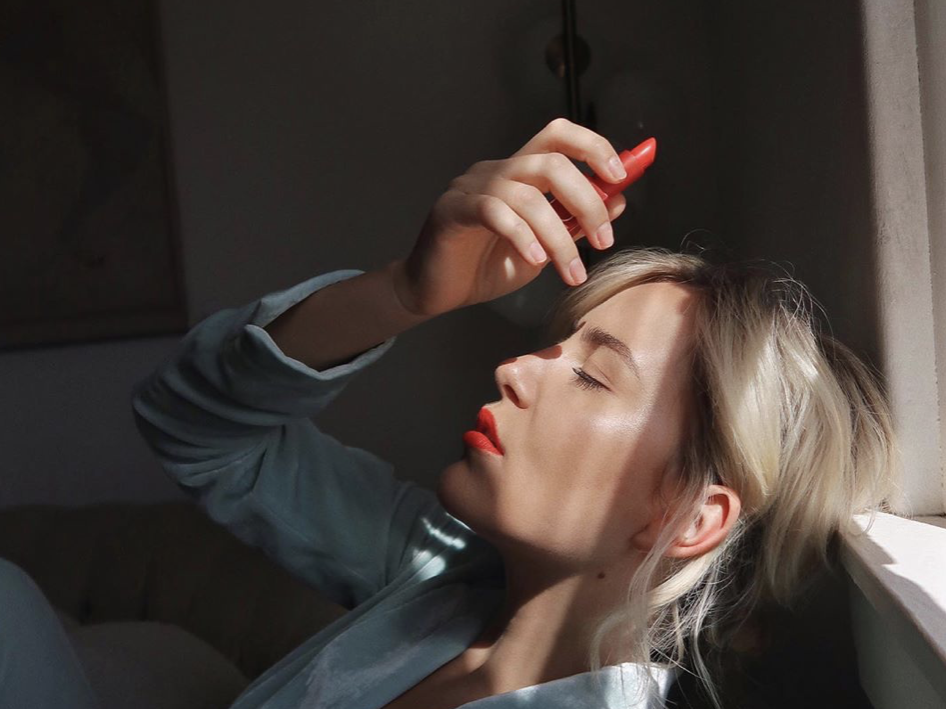As we continue in our new series, this week we meet Kelvin Ho, the founding director of Akin Atelier, a leading design practice comprising architects, interior designers and strategists whose thought-provoking work crosses the divide between Sydney and New York. Here, he reveals his thoughts on the future of shopping and why creating an emotional experience must matter in a way that it never has before.
UMENCO: The world changed so dramatically this year, and we have arrived at a real turning point. I’m interested to know how you are guiding your team right now and what are you focusing on?
Kelvin Ho: I think that we have to be so hypersensitive at the moment given we are navigating so many difficult issues as a community, and I’m finding that trickles all the way down to the way we work. More than ever, it’s about being conscious and aware of every decision – culturally, socially, physically. There’s real pressure to make changes and do things better, and that can only be a positive thing, and I love the idea that we are thinking about how to put greater conviction behind what we do.
"More than ever, it’s about being conscious and aware of every decision – culturally, socially, physically."
Kelvin Ho
"More than ever, it’s about being conscious and aware of every decision – culturally, socially, physically."
Kelvin Ho
UMENCO: And moving forward, how are you analysing the impact of the pandemic on your business?
Kelvin Ho: We are fortunate in that we’ve been able to craft a business that takes in a broad spectrum of clients, from hospitality, fashion, and retail, through to commercial hospitality, hotels, the arts. I love change, I love moving things around, the diversity. It has been a natural journey for me to really create a business that can collaborate with a wide range of partners, and continue to work with them on an ongoing basis, many of our clients have been with us for 10 years or more. So I would say that my loyalty and commitment have been a big backbone to the business. When Covid’s lockdowns came into effect, within the space of 48 hours most of our retail and hospitality jobs were put on hold. We know those clients will come back strong, however, it definitely created huge shifts in the commercial side of the business, which made up a large portion of our income, and that in turn required adjustments. Thankfully we were well-placed to be able to shuffle things around without impacting the team too much.
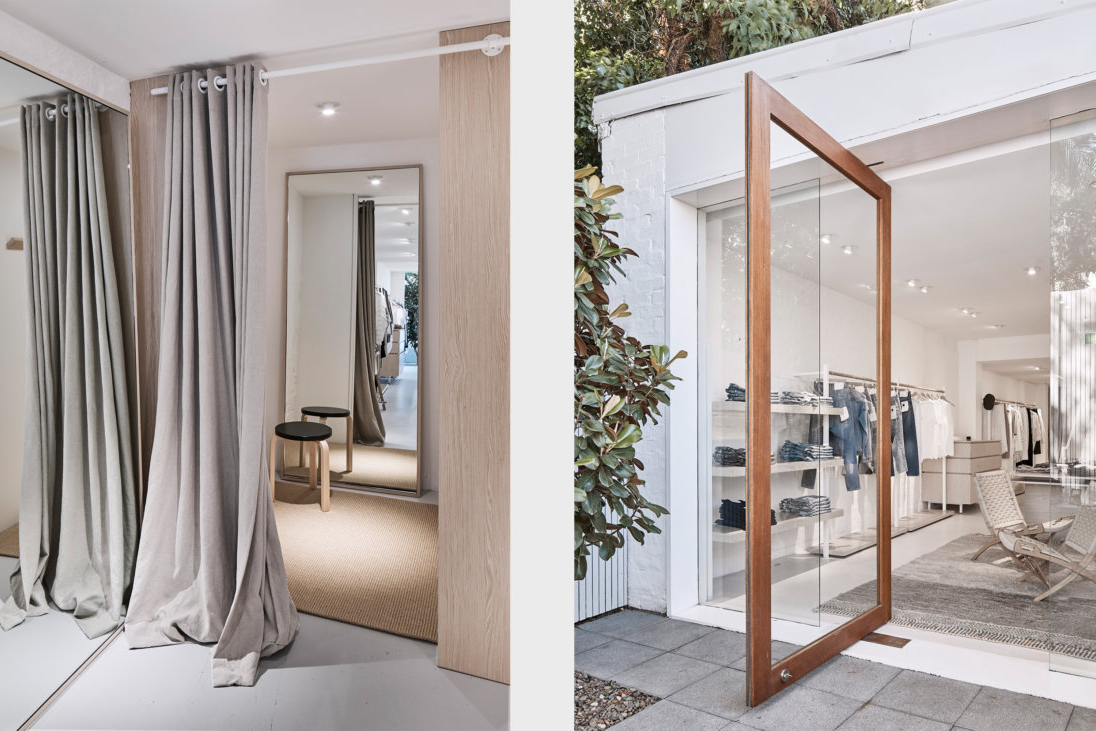
All images courtesy of Akin Atelier, from top; Bassike store Avalon, Bassike store Paddington.
UMENCO: Do you feel that your studio will come out of the 2020 pandemic with better processes in place, what has been your thought process?
Kelvin Ho: I spent a lot of time in lockdown really re-examining the business in detail. Before we were all-consumed with projects, deadline by deadline, but this made me really think about the studio as an entity and how we can move forward. I have always treated my work as something quite organic, but I think lockdown forced me to analyse in a strategic sense the type of work we do, the way in which we work, its efficiencies and so on. It was always my aim for the business to revolve around an ecosystem of projects that support each other – we make money on some projects, we lose money on others, but it all balances out.
UMENCO: So client values are key when it comes to signing new projects – how does that work and how would you describe Akin Atelier’s guiding design principle?
Kelvin Ho: Over the years, we have taken on projects where we have really been moved by a client’s philosophy. Sometimes they had limited budgets so we chose to support them with low fees or adapted time strategies such as reducing servicing hours and so on. On the flipside, other clients we work with require an ultra-efficient, streamlined service, immediacy. For each and every project though, I would like to think that we are perceived as having a certain level of accessibility or honesty to the way we work, and that’s a skill that I’ve always wanted to cultivate in the business and within the team. I think being honest with the client, and being accessible and vulnerable, goes a long way and that philosophy in turn seems to attract like-minded partners, which I love – clients, colleagues, builders who are all on the same page, looking through the same lens with a shared view on how to work together.
"Being honest with the client, and being accessible and vulnerable, goes a long way and that philosophy in turn seems to attract like-minded partners, [...] clients, colleagues, builders who are all on the same page, looking through the same lens with a shared view "
Kelvin Ho
"Being honest with the client, and being accessible and vulnerable, goes a long way and that philosophy in turn seems to attract like-minded partners, [...] clients, colleagues, builders who are all on the same page, looking through the same lens with a shared view "
Kelvin Ho
UMENCO: You talk about having such diverse clients, what do you think it is about your aesthetic and your viewpoint that appeals?
Kelvin Ho: The diversity in our projects is probably more of a result of our curiosity. With every project, we make a point of asking ourselves: what do we want to learn from this project, what do we want to explore, what can we bring to the client that is unique? If we can’t arrive at a compelling answer then it’s typically not the project for us. I learned early on that the financial outcome of a job isn’t necessarily the answer to those questions. It has to be about the sharing of knowledge, the creative output and direction, the collaboration and partnership. I think that attitude allows us to have an open-mindedness to cross genres. I don’t like to force a creative, for me it’s really a collaboration with the client, it’s about exploring a shared narrative. As a result, all of our projects are very different – from those with super-low budgets and quite crafted work through to the more futuristic spaces that are slick and minimal. The aesthetic is wide-ranging, and I think we also really strive to work with the best clients, not from a showcase point of view, but because we really love working with people that are pushing the envelope, the best in their field, be it in hospitality, fashion or the arts. It makes for a greater sharing of ideas – we want to be challenged by our clients, our best work is with clients that push us to think differently.
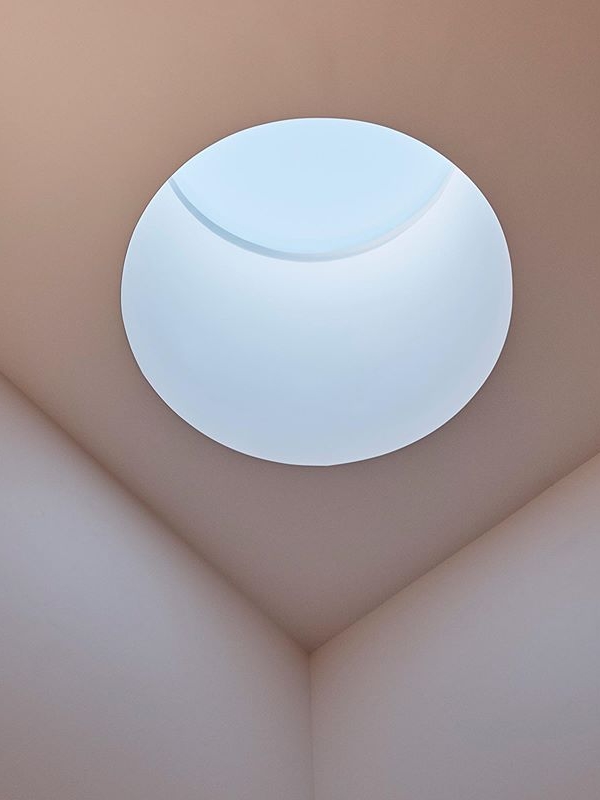
UMENCO: Was curiosity always a driving force?
Kelvin Ho: If I think back to the beginning of my career, one of my first jobs was working with retailer Belinda Seper on The Corner Shop [a cult multi-label boutique located in Paddington]. I was 25 at the time and had never worked in retail. A stylist friend made the introduction and I was very open with Belinda from the beginning. I had a lot of ideas, but she knew I had limited experience. She was a wonderful mentor, she taught me so much about the industry. At the same time, I shared my perspective on architecture and design, it was a real exchange. That laid the foundation – I brought ideas that were outside the spectrum, I think because I didn’t have any preconceived ideas on what retail required. I knew, from an early point in my career, that it was important to have those dialogues.
Working with Merivale is another good example. I would go so far as to say the group is the best in its class around the world, and therefore the work is hugely rewarding. We have eight-hour design meetings where we will discuss a project’s detail in great length – for example, the stitching seams on a banquette, the foam density of a chair and how that in turn changes your posture and the way you sit, your mood. They are constantly striving for a really amazing result and that is enormously inspiring, such a motivation to me. It’s something I need in this role because, ultimately, I know I have an innate fear of becoming stagnant or irrelevant. I have a short attention span. I need things to be constantly evolving, I’m all about questioning why and moving quickly through the motions, things don’t have to always be done exactly the same way. I’m a big believer in that.
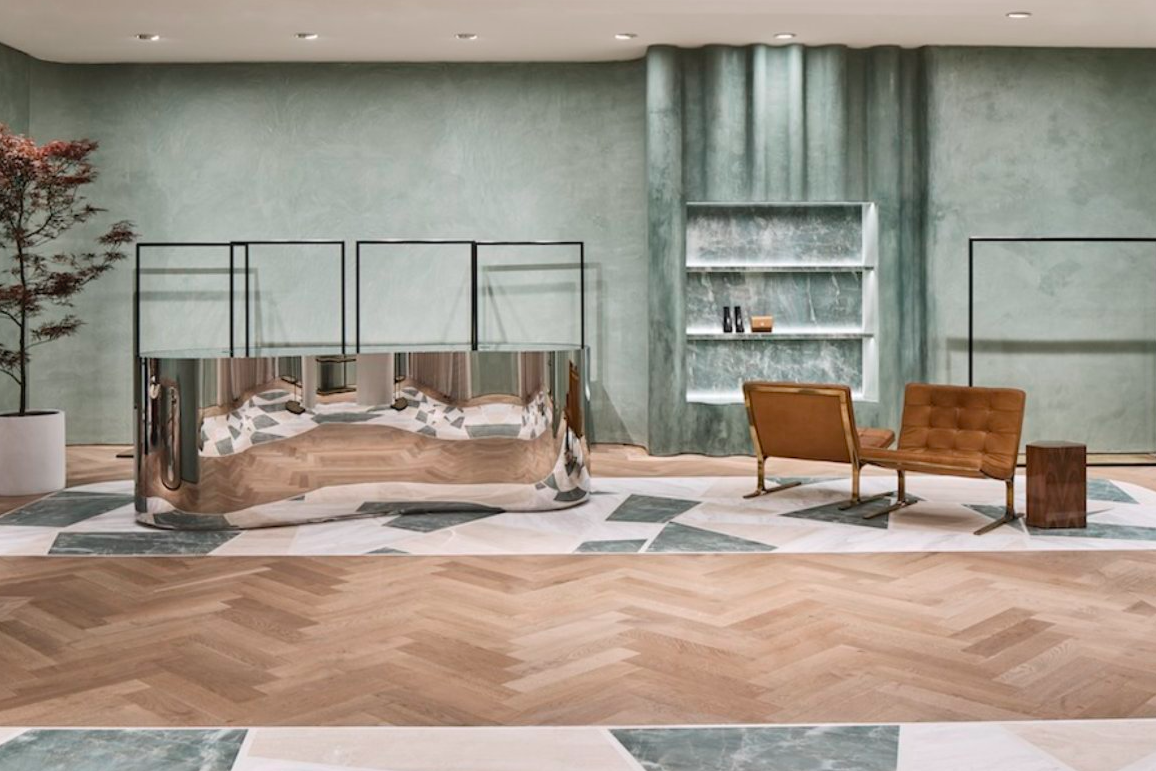
All images courtesy of Akin Atelier; above, Dion Lee Bondi Junction store, detail of INCU Head Office, CAMILLA AND MARC Bondi Junction store, and below, Dion Lee Armadale.
UMENCO: I’m also interested to know your thoughts on retail spaces moving forward, and how this will impact the art of shopping. You create environments that conjure emotions in people the minute they walk into a store, but when you consider we’re now facing enormous changes such as plexiglass barriers and social distancing measures, how do you envision spaces of the future?
Kelvin Ho: I think there’s going to be a huge shift from the top down, in terms of how people consume fashion and that will start to inform retail spaces as well. In my mind, there are two parts to this. The first is that, yes, an enormous amount of thought will have to go into the practicalities of social distancing and what that means in terms of fitting rooms, touching products, and so on. I think we’ll start to see more personalised shopping experiences built around curated wardrobes with more of a focus on the longevity of products, the investment in pieces. So perhaps it won’t be about cycling through seasons with the same manic pace. There inevitably has to be a bit of a slowdown and therefore the spaces will be built around making those moments of interaction much more engaging. I think that’s something that I’ve always been aware of in my work, is that idea of slowing down to the point where you can actually become really engrossed and engaged in the store experience and not distracted.
Every experience also needs to be tailored to the brand. For example, if you look at Dion Lee’s stores, it was always about creating these immersive environments, balancing the line between retail and an art installation, creating an experience in itself. Emotions come into it. And that’s what I love so much about this work – I think it is the role of any designer to have an emotional effect on someone. It goes back to the idea of how foam density may seem insignificant but it can absolutely influence your emotion, your posture and then determine how you feel and how you behave when you’re seated at the restaurant table. Attention to detail is so imperative in all our work because every decision, no matter how small, can totally amplify an experience and make it better.
"There inevitably has to be a bit of a slowdown and therefore the spaces will be built around making those moments of interaction much more engaging."
Kelvin Ho
"There inevitably has to be a bit of a slowdown and therefore the spaces will be built around making those moments of interaction much more engaging."
Kelvin Ho
UMENCO: So when you look back, what do you feel has been the greatest learning moment in your career, and what has been your best piece of advice?
Kelvin Ho: I almost feel like this year has proven to be one of the biggest learning opportunities. I think it’s about having more empathy for the people that aren’t on the same page – it’s not about trying to influence or change them, but rather just talking to them, hearing their point of view and opening up a dialogue. Then, certainly, I’ve grown from the experience of managing a team, referring back to that idea of like-mindedness and surrounding yourself with people who are on the same page, and those that inspire you. It’s about being patient and having that ability to listen, it’s not about ego. My other advice is to not sweat the small stuff, which is a bit of a cliche, but I think it’s best to assess the problems you have in front of you and prioritise which things to focus on, and work through them, then everything seems to fall into place. Probably my greatest learning moment, however, has been having children. When you have kids, you suddenly throw everything up into the air and there’s no more control.
UMENCO: Lastly, what do you think then has been the key to your success?
Kelvin Ho: Success comes from having a fantastic team. We have put a huge amount of energy into building the culture of our business and letting team members take on real responsibilities, allowing them the time and opportunity to grow and learn. So the key has definitely been working with great people, and then also knowing my own strengths and my weaknesses – the team is such a big motivator for me on a daily basis, it’s the reason why I come to work each day. Ultimately, I wanted to bring like-minded people together to create this multi-disciplinary company that could create spaces that we truly believed in and really make a difference.
"Success comes from having a fantastic team. We have put a huge amount of energy into building the culture of our business [...] the team is such a big motivator for me on a daily basis, it’s the reason why I come to work each day."
Kelvin Ho
"Success comes from having a fantastic team. We have put a huge amount of energy into building the culture of our business [...] the team is such a big motivator for me on a daily basis, it’s the reason why I come to work each day."
Kelvin Ho


